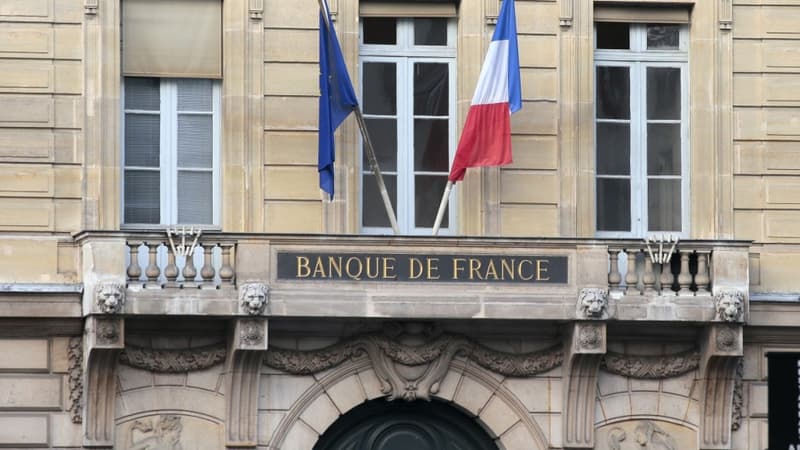Despite the shocks, the French economy is still holding up: it should stabilize in January, after modest growth at the end of 2022, the Banque de France said on Wednesday. Sustained inflation that is eating away at purchasing power, energy prices that have skyrocketed since the Russian invasion of Ukraine, post-Covid supply tensions… In the face of accumulating dangers, the economy is twisting without breaking . “Resilience is confirmed and even prolonged,” French central bank CEO Olivier Garnier said during a press conference.
“There is a level of concern for the future that remains high (…), but despite everything, month after month, activity continues to progress slightly, although of course in a less sustained way than in the first half of 2022” , added the economist.The growth of the gross domestic product (GDP) should thus reach 0.1% in the fourth quarter of 2022, taking into account the penalizing effect of the fall strikes in refineries and maintenance of nuclear power plants, with a “slight increase in December”, according to the institution, then it should become “almost stable” in January.
For all of 2022, the Banque de France confirmed its growth forecast of 2.6% (versus 2.5% for INSEE), before a sharp drop in speed in 2023, to +0.3% according to its scenario principal. But there are still “a lot of uncertainties about the first quarter,” Olivier Garnier said. The institution does not exclude a “limited and temporary” recession.
In the medium term, the Banque de France is committed to an economic cycle with three “Rs”: resilience, slowdown and recovery from 2024. The Government, which has deployed a battery of aid to support companies and households, is counting on it to a 2.7% GDP increase in 2022, before a sharp slowdown to 1% this year, a scenario considered overly optimistic by many economic institutes.
sectoral disparities
In detail, activity continued to grow in December in industry, services and construction, with more strength than expected the previous month, according to the results of the latest monthly survey conducted among 8,500 business leaders between December 20 and December 5. from January. Olivier Garnier cited in particular an easing of fears related to power supplies, thanks to mild winter temperatures, and order books still “well supplied” despite a decline.
This is particularly the case for aeronautics, computer products and electrical equipment. But the order books are considered “low” on chemicals and rubber and plastic. In January, activity should progress a little in services and industry, although with strong sectoral disparities: drop in clothing or, in particular, rubber-plastic, increase in pharmaceuticals, automobiles or aeronautics. She would be stable in the building.
Like the other major Western economies, France is facing a rise in inflation, which should peak in the first half of 2023, but its central bank notes a “slight moderation in price rises in industrial , although it remains sustained” in December. Without inflection, however, in services and construction.
“Strong price increase” in January
For January, “business leaders anticipate a strong price rise”, which “would be greater than the seasonal increase that is traditionally observed at the beginning of the year,” the bank specifies. Increases that some companies affect their sales prices. In December, supply difficulties eased, the cash position stabilized but at a “relatively low” level in the industry, while contracting remained difficult.
Inventories continued to rise, staying at a “high” level due to falling demand or, in particular, supply difficulties, or even fears of potential power outages in the coming months. Regarding the impact of the energy crisis on their activity in December, the companies did not report any significant change compared to the two previous months. Thus, 23% of them say they were affected in December. However, 32% expect an impact in the next three months, and even more fear for their margins (52%).
Source: BFM TV


